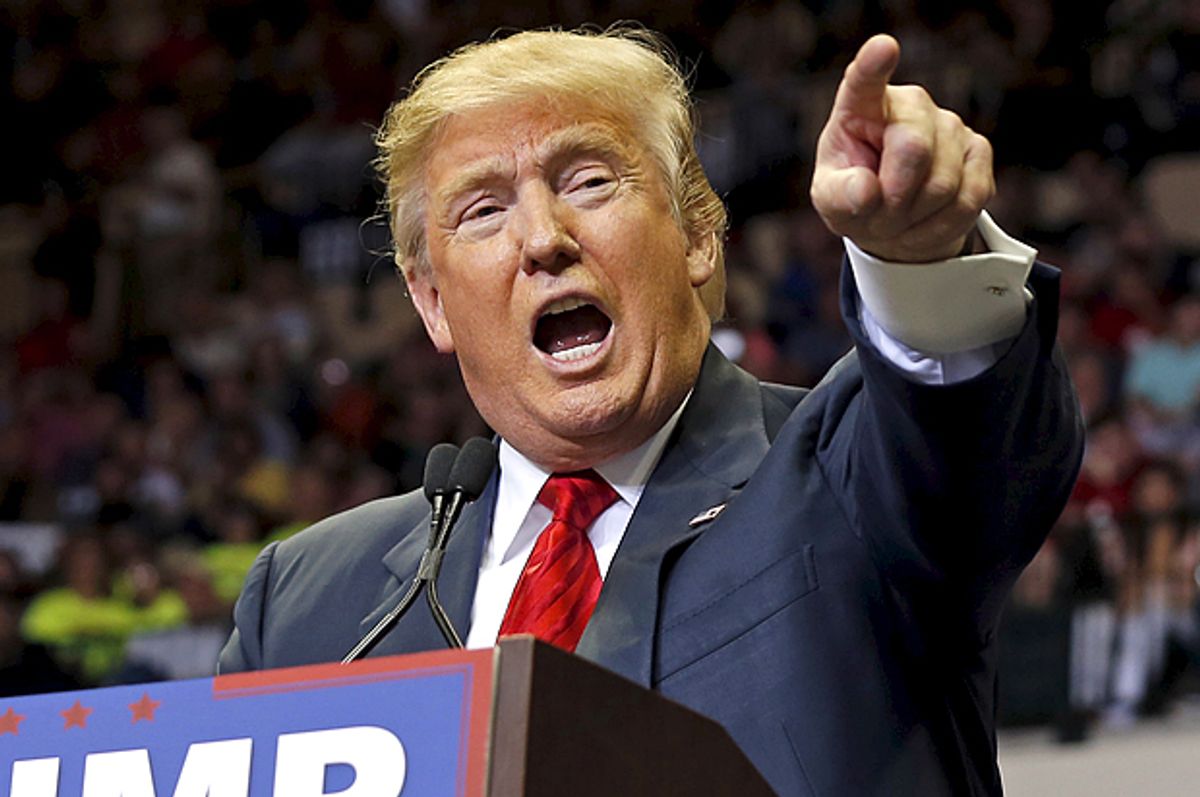The results of Nevada’s Republican caucuses, while not surprising, do help to clarify a few things. Everyone expected Trump to win. He was polling at 45% in the pre-caucus polls with Rubio and Cruz trailing at 19% and 17%, respectively.
The question going into Nevada wasn’t whether Trump would win, but rather by how much? If there were lingering doubts, it was about his ability to win a caucus. Trump has run a national media-based campaign, and so he’s at a comparative disadvantage in caucus states, where mobilizing supporters is critical. He lost in Iowa, for example, because he was out-organized by Cruz, whose ground game mattered in the end.
But Nevada was a different story.
Not only did Trump win, he had received over 40 percent of the vote as of this writing Tuesday night. Trump’s margin of victory is a testament to his broad appeal among Republican primary voters. He boasted in his victory speech that he won "the evangelical, we won with young, we won with old, we won with highly educated, we won with poorly educated. I love the poorly educated!" Trump noted that he also got 46% of the Hispanic vote.
Nevada is a closed-caucus state, which means independents and Democrats weren’t able to participate. This was a potential hurdle for Trump, given his unusual coalition, but clearly it didn’t matter. He won easily on Republican support alone.
Nevada was an interesting test for Marco Rubio. He’s got some things working in his favor there – a personal history in the state, veteran political operatives on the ground, and broad institutional support. Now that Jeb is gone, he needed to establish himself as the most credible challenger to Trump. His long-term strategy is to stay relevant and pocket delegates until he and Trump are the only candidates standing.
Rubio’s pitch to Nevadans was simple: unite around me if you want a Republican to win the presidency (translation: Ted Cruz can’t win a general election). He narrowly beat Cruz for second place in South Carolina. Widening the gap in Nevada was a must for Rubio; it was his first chance to fully seize the establishment lane of the party. As of this writing late Tuesday night, he was the clear second place finisher, with 25 percent of the vote. Considering the expectations, Rubio will live with that.
Ted Cruz has been in a quasi-free fall since Iowa. Although he’s basically declared victory after every primary, Iowa was his only win thus far – and that was under suspicious circumstances. South Carolina was particularly devastating for him. His only true constituency is evangelicals, and he lost them by six points in South Carolina to Trump.
Cruz’s path to the nomination is shrinking by the day. He needed a definitive boost in Nevada, and it didn’t happen. Although the results aren’t final yet, it appears Cruz will finish in third place behind Rubio, with roughly 20 percent of the vote. Cruz has plenty of resources and a near-heroic commitment to self-preservation, so I expect him to declare victory (again) and move on to the Super Tuesday states.
Bottom line: The Trump juggernaut rolls on its relentless way. With each primary or caucus, Trump’s inevitability becomes increasingly obvious. As I wrote earlier this week, Ted Cruz has virtually no chance of winning the nomination at this point. This is a two-candidate race right now: Trump and Rubio. After tonight, Trump heads into Super Tuesday with a substantial delegate lead, and he’s likely to dominate in most of the upcoming primaries. He’s won a Northeastern state, a Southern state, and now a Western state. If it wasn’t obvious already, it is now: Donald Trump is the runaway front-runner in this race.

Shares